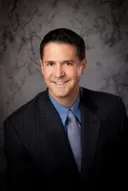Working as a Team with Your Hospital's Emergency Physicians

Mark Bowden/123RF.com
We are not trying to hurt you.
We are all playing the same game, and the outcome is singular - for the patient to win.
Good interpersonal relationships among physicians are critical in fostering excellent patient care. With ever-expanding mandates, both governmental and administrative, along with the changing landscape of medicine, physician-physician relations are often strained. These and other systemic factors contribute to physician angst and can lead to disruptive behavior and relationships. Tempers flare and conflicts develop over perceptions about another doctor's ability, motivation, and decisions.
We are not just car crash docs
The clip of medical research makes it impossible for any one doctor to keep pace with the volume of data. EM physicians are experts at managing life-threatening illness and a multitude of diseases. We know several steps beyond the initial treatment and often find ourselves managing patients that would be better served upstairs or in the ICU. The nature of the patient flow, hospital overcrowding, and the growing crush of increasing patient volumes create boarding situations in the ED. We are doing the best we can with the resources we have at hand.
The ER team is focused on providing the best care they can with the tools and staff available. This includes acting on past experience to keep patients alive. While this may not always be cutting edge or rely on the latest information from a leading journal, those who work in emergency medicine pride themselves on flexibility and adaptability. We do the absolute best we can, with what we have, given the limited information and time available.
Please resist the temptation to criticize. We are open to constructive, learning-based criticism and eagerly want to learn from you. Most would love to hear the latest, best evidence gleaned from an IM or Critical Care conference. Practicing medicine is complex and patient care increasingly more complicated.
The bottom line is that we appreciate your knowledge and skill.
We are putting out fires, while swimming in a fishbowl
Thinking back, several interactions still cause a bristle.
Missing a minuscule piece of data buried in volume 3 of 7 for a 103-year-old nursing home patient is not surprising. It wasn't intentional. When the house is burning down, there's only enough time to save one life and get out.
Picture this:
As the EM physician begins to sift through the chart, a seizing patient arrives shortly followed by an overdose. Both need immediate attention and playing with the chart takes a temporary back seat.
Emergency medicine requires quick thinking and acting on incomplete information. Pointing out that patient X had an adverse reaction to prednisolone 68 years ago, even though it was not noted in any allergy list (including the one generated on the last week's office visit) and then pointing the finger at the ED physician for the patient's agitation after receiving solumedrol for an allergic reaction that prompted the ER visit in the first place is not fair or helpful.
EM is like practicing in a fishbowl. We swim around frantically while others look down on us, analyzing our decisions. EM docs do their very best for every patient, but don't chastise us for not finding every detail. Time is an absent luxury.
We feel for you
Knowing that a hospitalist has taken fifteen admissions already will not sway the decision to admit the next patient. We see the challenge of managing an unstoppable flow of patients every day. The voice on the other end of the phone is merely trying to provide proper care and not add an extra burden to the life of a hospitalist or admitting physician. We hear your complaints and understand, but please understand we are not trying to hurt you. Let's agree to work together and move the process along. The patient will be much more comfortable in an inpatient bed rather than lying on a cot in the ER hallway for another six hours.
Working as a locums physician provides a glimpse into numerous health systems. Many have solved the turf battles long ago, but relationships are dynamic and pausing to remember the ultimate outcome - excellent patient care - is paramount.
We are all part of the same team. Let's partner and execute at the highest level possible. As medicine expands exponentially, our ability to collaborate as one will help usher in a new approach to making illness optional.
Related Posts
